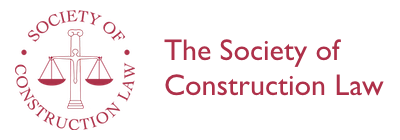Enforcing Mediation and ADR Agreements in International Construction Contracts: Transnational Principles and Comparative Perspectives
Shouyu Chong
July 2024
A paper based on the second prize winning entry in the Hudson Prize essay competition 2023
This paper asks whether the parties’ autonomy to subject themselves to mediation and ADR provisions is limited because such provisions may prove to be unenforceable in court. The arguments presented bridge the gap in understanding the enforcement of mediation and ADR provisions, particularly from a transnational perspective. This paper demonstrates that in practice such provisions are enforced in a good number of jurisdictions of varying legal traditions. It explains how the misconception in practice – that such provisions may generally be regarded as unenforceable – could have arisen. It sets out a robust counterargument, demonstrating that there are powerful justifications to be drawn from the principles of contractual party autonomy which should render them enforceable.
1. Introduction – 2. Enforcing mediation and ADR agreements: Party autonomy versus what happens in practice – 2.1 Rationale for enforcing mediation and ADR agreements – 2.1.1 Certainty and predictability – 2.1.2 Economic efficiency – 2.1.3 Case management function – 3. Enforcing mediation & ADR provisions in practice – 3.1 Civilian legal traditions – 3.1.1 France – 3.1.2 Switzerland – 3.2 Common law traditions – 3.2.1 The United Kingdom – 3.2.2 Singapore – 3.2.3 Australia – 3.3 Multi-lateral treaties regulating and harmonising enforcement of mediation agreements – 4. Conclusions
The author: Shouyu Chong was a Visiting Lecturer and completed his PhD at the Centre of Construction Law & Dispute Resolution, King’s College London, and from August 2024 will be a Lecturer in Business Law at the University of Leeds
Text: 20 pages
